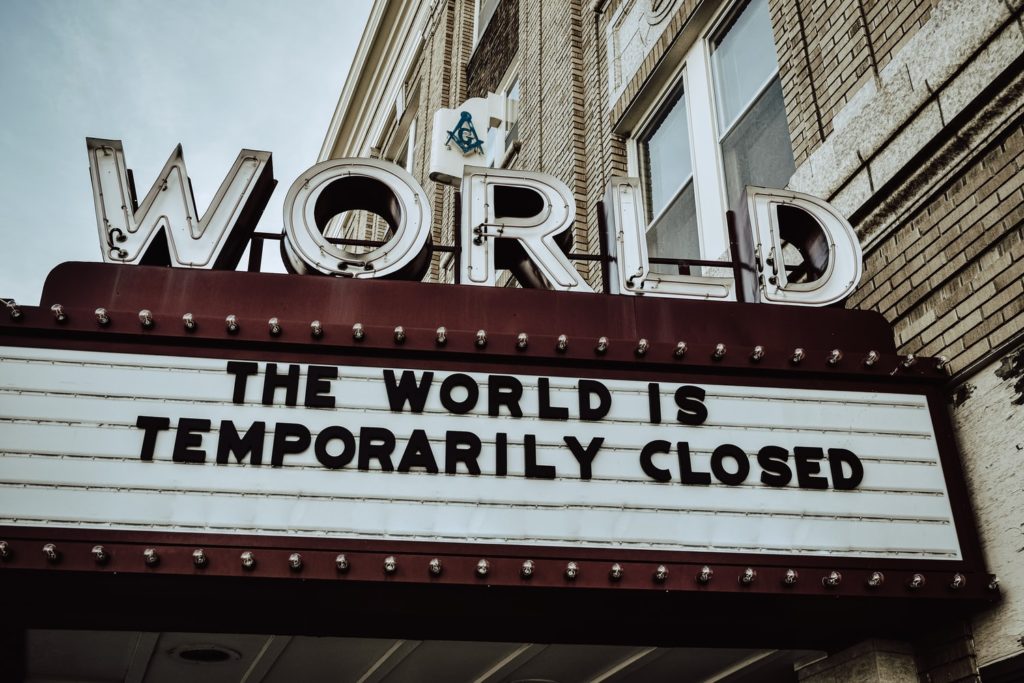
The coronavirus pandemic is causing major economic and social disruptions, and impacts to the daily lives of Singaporeans. We should never let a crisis go to waste, as a crisis can result in permanent behaviour change. The pandemic has resulted in changes to how we work and live, and these temporary changes could shift our behaviours to a new normal after the pandemic. We can learn the lessons from this coronavirus pandemic to help us change our behaviours and become more green.
1. BYO (Bring Your Own) container for food takeaways
Singapore will introduce stricter stay at home measures for non-essential activities during the circuit breaker period from 7 Apr to 4 May 2020. During this period, all hawker centres, food courts, restaurants, and food and beverage outlets, will remain open only for takeaway and delivery. Singaporeans are encouraged to bring their own containers for food takeaway.
This one-month circuit breaker can be a useful period for you to prepare your BYO containers and practise how to dapao for your food. This helps to reduce the amount of plastic disposables generated for takeaways. Hopefully, this BYO experience will encourage you to continue BYO-ing after the circuit breaker period.
2. Support our local farms
Although food supplies from Malaysia will not be disrupted with the lockdown in Malaysia, this is a good opportunity to drive home the Singapore Food Story on enhancing Singapore’s food security. The government aims to support local companies to grow enough food in Singapore to meet 30% of our nutritional needs by 2030.
Local produce grown in Singapore is safer, fresher and lasts longer. There is less spoilage and food waste, as the produce does not need to travel for long periods of time. It also means a lower carbon footprint to bring food to the table. During this pandemic, you can play a part to support local farms, buy local produce, and improve Singapore’s food security.
3. Reduce business travel
Due to the pandemic, Singaporeans are working from home and embracing online videoconferencing platforms and tools for meetings and webinars. Most overseas conferences are cancelled or postponed, while some conferences are instead held online through live video streams or using virtual reality. As a result, we see an increase in event organisers planning more new and innovative virtual conferences and courses online. This trend is likely to stay after the pandemic as people realised that these online videoconferencing and virtual reality options are quite effective too.
As you get used to more online videoconferencing platforms and tools, this allows you to be more comfortable in using these options to replace travelling overseas for business meetings or conferences when the COVID-19 situation has improved. This reduction in business travel would help to reduce the carbon emissions from air travel.
4. Embrace a more vegetarian diet
As the pandemic takes a toll on people’s finances and with more people feeling stressed and more anxiety, we can consider embracing a more vegetarian and plant-based diet and reduce our meat intake. Having more vegetarian meals could possibly reduce our food expenses and improve our health. Meat production, especially beef, is more carbon intensive than plant crops, so having more plant-based food helps to reduce carbon emissions too.
You can use this pandemic period to start embracing a more vegetarian diet and reduce your meat intake, especially beef. You do not have to be a strict vegetarian immediately, but can use this opportunity to explore more vegetarian food options and outlets for takeaways, or try more vegetarian recipes when cooking at home. You can increase your diet to more plant-based over time.
5. Practise sufficiency
In Singapore, overconsumption and wastage of resources seem to be a norm. We buy more stuff than what is necessary, use and throw away more waste. The coronavirus pandemic is perhaps a good time to ask ourselves whether we should practise sufficiency in our consumption. Sufficiency means to buy, take and use only what we need, rather than to over-consume and over-spend.
In this difficult and resource-constrained period, we are forced to recognise that there are other things to pursue in life besides consumption; things that are more important like relationships, health and happiness. Use this opportunity to constantly remind yourself about the idea of sufficiency and ask yourself whether you need to buy, take or use something in the first place. Whether it is good or bad times, try to buy, take and use only what you need.
During this coronavirus pandemic period, we can learn, explore and practise these 5 lessons to change our behaviours and be more green. While Singaporeans will eventually return to normal after this pandemic, we hope that the sustainable behaviours learned would not go to waste and would continue to be entrenched in our daily lives.
